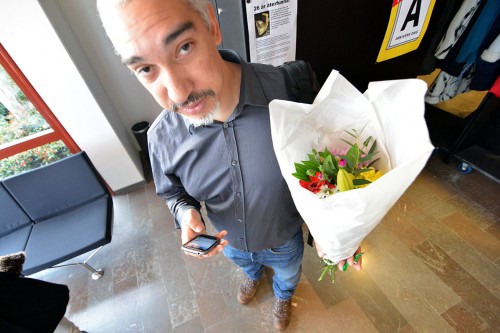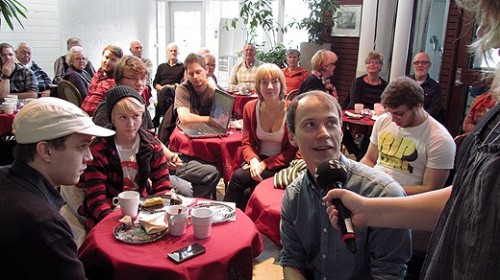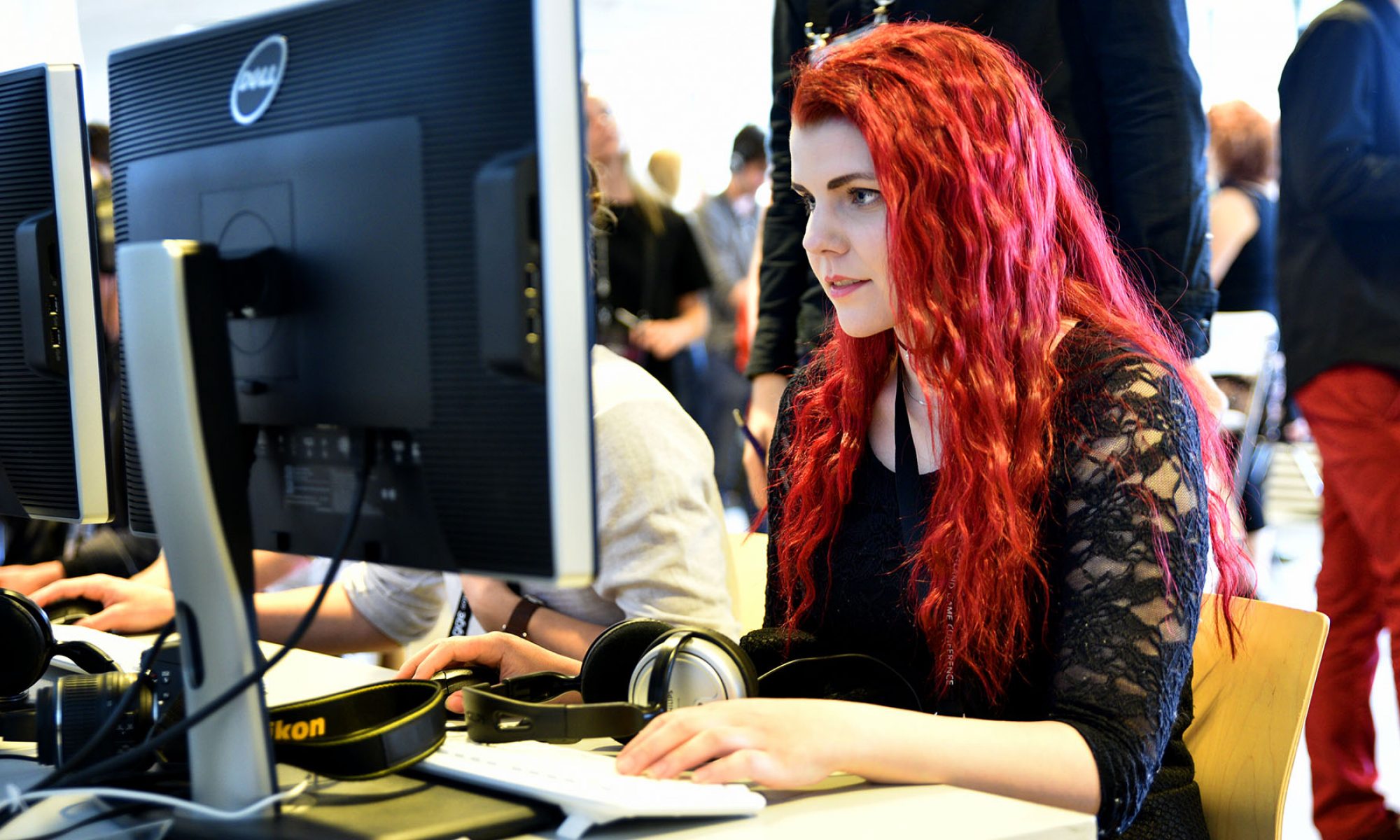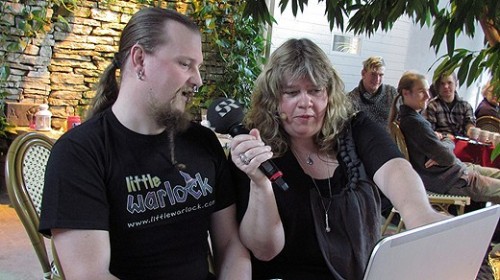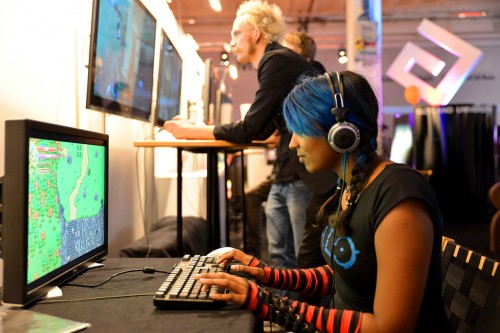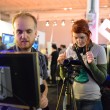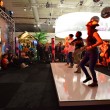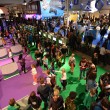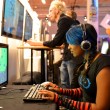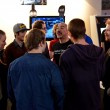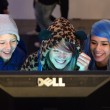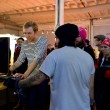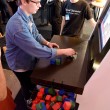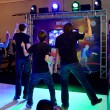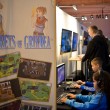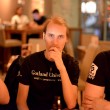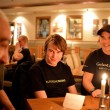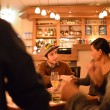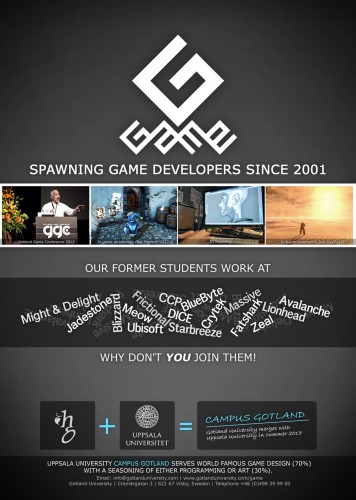Adam and I were invited to speak at Landsarkivet in Visby, during Arkivens Dag.
That was an amazing invite, as the mission of the National Archive reverberates strongly with us (GO ARCHIVE TEAM!)! Ever since the 17th century (we shit you not!) they have stored, kept safe and promoted access to all kinds of written, typed and printed artifacts of the Swedish society. If it wasn’t carved on a rune stone, these people stored it. (someone else takes care of the stones. :)) We’re talking content from both public sectors, private corporation and individuals. It’s huge! In fact – the National Archive represents Swedens single largest cultural ministry. So. Loooove.
Back to the talk? You bet! Our abstract was;
Good Games = Good Learning:
Life is too short to RTFM. Any good game teaches you while you play. They keep you on the edge of your ability, constantly engaged and striving to be better. If you’ve ever said – if you’ve even thought – “why can’t my children be as interested in their education as they are in that game”, this presentation is for you. Adam Mayes and Ulf Benjaminsson – from Gotland University GAME – will demonstrate how all good games offer a powerful learning environment, and how the patterns and methods they use can be easily transferred.
We started with a short de-tour, addressing last weeks media coverage of “game addiction”. Even though no-one in the audience had heard the debate it felt important to slay that beast. With fire.
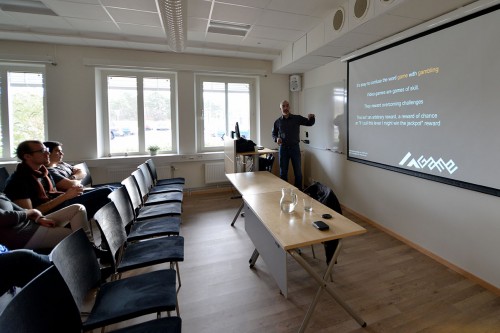
The audience was entirely foreign to us (and we for them) so the first half was groundwork – what is a game? Most reasonable people are not used to system thinking or design, so this was necessary but too abstract.
But by the half-way point we hit our stride and cruised on top of well ordered problems (“scaffolded challenges”), self-motivated exploration of problem space, forming strong hypothesizes and validating them, fluid intelligence, grey matter and the neuroscience of intrinsic reinforcement. Lot’s of nodding heads and relieved smiles at this point. 🙂
The audience were hardly fighting for seats, but it’s really not the size of the audience, it’s having the right audience. You never know who’s sitting among the present few, and what effect your work can have on them.
In this regard, our audience was awesome. We had Nils – a ten year old who builds games with Scratch. He asked some really good questions and we spent quite some time with him afterwards. We had the director of the Swedish Archives, who devoured what we were saying and suggested future collaborations. As did Marie Anderson – an amazing teacher-lady running the Gold Apple-awarded education on northern Gotland; applying modern tech and language to primary school education.
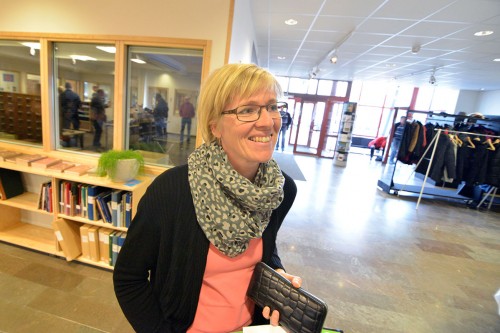
We actually used her as an example in our talk, and she didn’t even realize it was her we were talking about. She was like “amazing! are there more people doing this too?!”. Hahaha! 😀
Anyway. Converted a few minds, made lots of new contacts, wrote a pretty decent presentation. Good game!
… and they gave us flowers! 😀
